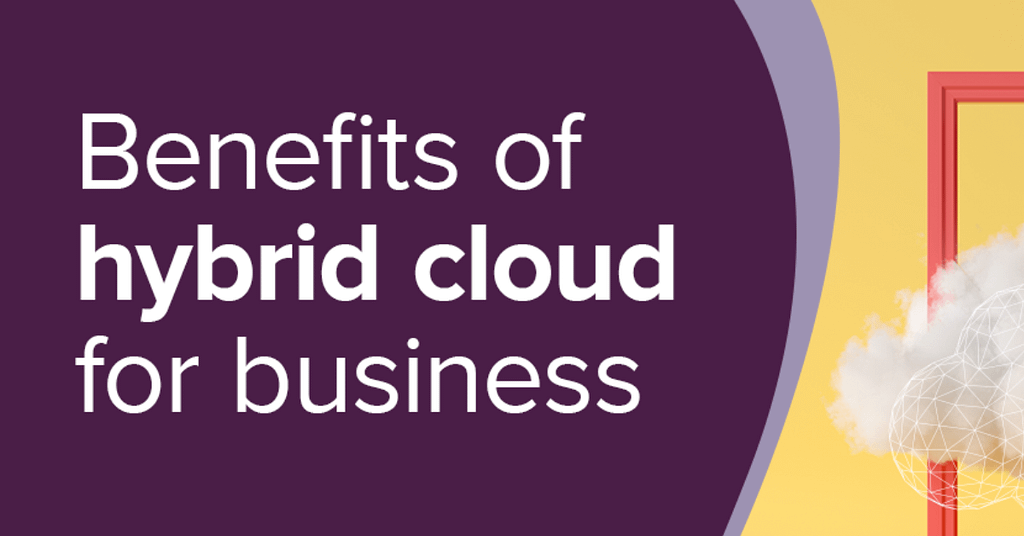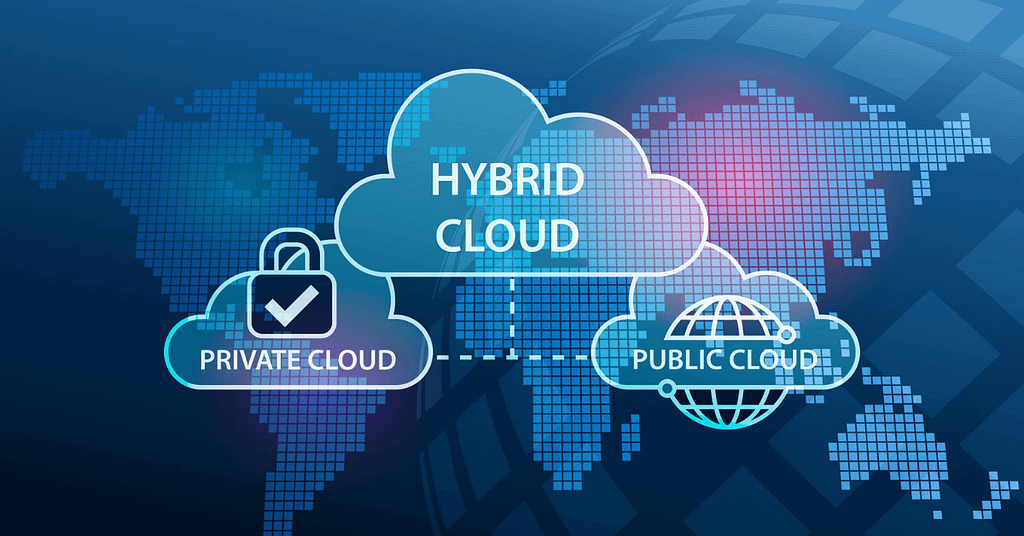In the ever-evolving world of cloud computing, businesses are increasingly adopting hybrid cloud solutions to balance flexibility, security, and cost-efficiency. A hybrid cloud combines the best of both worlds—public cloud scalability and private cloud control—but managing this complex environment can be challenging. This is where IT services come in, bridging the gap between infrastructure and innovation. In this article, we’ll explore what hybrid cloud solutions are, their benefits, the challenges they present, and how IT services can help businesses maximize their potential.
What Are Hybrid Cloud Solutions?

A hybrid cloud solution integrates public cloud services (like AWS, Microsoft Azure, or Google Cloud) with private cloud infrastructure or on-premises systems. This approach allows businesses to:
- Store sensitive data on private servers for enhanced security.
- Leverage public cloud resources for scalable, cost-effective operations.
- Seamlessly move workloads between environments based on demand.
Hybrid cloud solutions are ideal for businesses that need flexibility, compliance with strict regulations, or a gradual transition to the cloud.
The Benefits of Hybrid Cloud Solutions

1. Enhanced Flexibility and Scalability
Hybrid cloud solutions allow businesses to scale resources up or down based on demand. For example, during peak seasons, companies can leverage public cloud resources, while maintaining critical operations on private servers.
2. Improved Security and Compliance
Sensitive data can be stored on private servers, ensuring compliance with regulations like GDPR or HIPAA. Meanwhile, less sensitive workloads can benefit from the cost-efficiency of public clouds.
3. Cost Optimization
By using public cloud resources for non-critical workloads, businesses can reduce infrastructure costs without compromising performance or security.
4. Disaster Recovery and Business Continuity
Hybrid cloud solutions enable robust disaster recovery plans by replicating data across public and private environments. This ensures business continuity in case of outages or data loss.
5. Seamless Integration
Hybrid cloud solutions allow businesses to integrate legacy systems with modern cloud technologies, enabling a smooth transition to digital transformation.
Challenges of Hybrid Cloud Solutions
While hybrid cloud solutions offer numerous benefits, they also come with challenges that require expert management:
1. Complexity in Management
Managing multiple environments—public cloud, private cloud, and on-premises systems—can be complex and resource-intensive.
2. Security Concerns
Ensuring consistent security policies across hybrid environments is challenging, especially when data moves between public and private clouds.
3. Integration Issues
Integrating legacy systems with modern cloud platforms can lead to compatibility issues and performance bottlenecks.
4. Cost Management
Without proper oversight, hybrid cloud costs can spiral out of control due to inefficient resource allocation or overprovisioning.
5. Skill Gaps
Many businesses lack the in-house expertise needed to manage hybrid cloud environments effectively.
How IT Services Bridge the Gap in Hybrid Cloud Solutions
IT services play a critical role in addressing the challenges of hybrid cloud solutions. Here’s how they help businesses maximize the benefits of hybrid cloud environments:
1. Simplifying Management with Unified Tools
IT service providers use centralized management platforms to monitor and control hybrid cloud environments. Tools like VMware vRealize or Microsoft Azure Arc provide a single pane of glass for managing resources across public and private clouds.
Actionable Tip: Invest in cloud management platforms to streamline hybrid cloud operations.
2. Enhancing Security and Compliance
IT services implement consistent security policies across hybrid environments, ensuring data protection and regulatory compliance. They also use encryption, firewalls, and identity management systems to safeguard sensitive information.
Actionable Tip: Conduct regular security audits to identify and address vulnerabilities in your hybrid cloud setup.
3. Ensuring Seamless Integration
IT service providers help businesses integrate legacy systems with modern cloud platforms, ensuring compatibility and optimal performance. They also use APIs and middleware to facilitate smooth data flow between environments.
Actionable Tip: Work with IT experts to develop a phased integration plan for legacy systems.
4. Optimizing Costs
IT services analyze cloud usage and identify cost-saving opportunities. They help businesses implement auto-scaling, resource optimization, and cost management tools to control expenses.
Actionable Tip: Use tools like AWS Cost Explorer or CloudHealth to monitor and optimize hybrid cloud spending.
5. Providing Expertise and Training
IT service providers offer the expertise needed to manage hybrid cloud environments effectively. They also provide training and certification programs to upskill in-house teams.
Actionable Tip: Partner with IT service providers who specialize in hybrid cloud solutions.
6. Enabling Disaster Recovery and Business Continuity
IT services design and implement robust disaster recovery plans for hybrid cloud environments. They ensure data replication, backup, and failover mechanisms are in place to minimize downtime.
Actionable Tip: Test your disaster recovery plan regularly to ensure it works effectively.
Real-World Applications of Hybrid Cloud Solutions
1. Healthcare
Healthcare organizations use hybrid cloud solutions to store sensitive patient data on private servers while leveraging public clouds for research and analytics.
2. Finance
Banks and financial institutions use hybrid clouds to comply with strict regulations while benefiting from the scalability of public clouds for customer-facing applications.
3. Retail
Retailers use hybrid clouds to handle peak shopping seasons by scaling up public cloud resources while maintaining inventory and transaction data on private servers.
The Future of Hybrid Cloud Solutions
As businesses continue to embrace digital transformation, hybrid cloud solutions will play an increasingly important role. Emerging trends like edge computing, AI-driven automation, and serverless architectures will further enhance the capabilities of hybrid clouds. IT services will remain essential in helping businesses navigate these advancements and maximize their potential.
Conclusion
Hybrid cloud solutions offer a powerful way to balance flexibility, security, and cost-efficiency. However, managing these complex environments requires expertise and strategic planning. IT services bridge the gap by providing the tools, knowledge, and support needed to optimize hybrid cloud operations.
Ready to unlock the full potential of hybrid cloud solutions? Contact our IT services team today and take the first step toward seamless cloud management!

